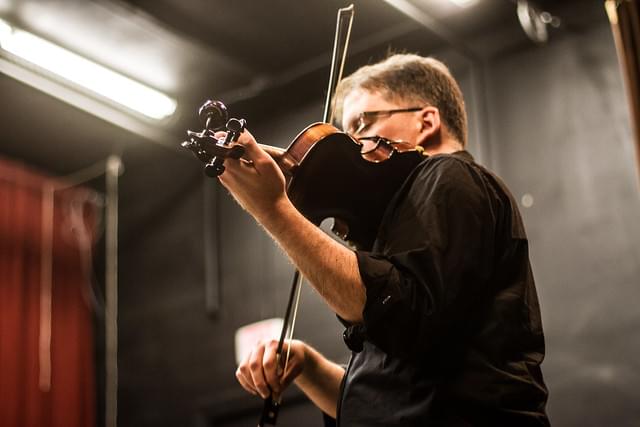Right Shoulder Round
In my previous post about contra terminology, “Larks and Ravens” I briefly discussed why I think it’s a bad idea to use role names that aren’t inclusive of all new dancers. Terms that aren’t very inclusive are a bad enough idea, but now maybe we should talk about a term that is actively exclusive. I’m referring, of course, to the move formerly known as a “gypsy”. As you may be aware, “gypsy” is considered to be a racial slur by some groups of the Romani people, while others have embraced it to rob it of its pejorative meaning.
As with “gents” and “ladies”, I’ve heard the argument that this move should not be renamed because of “tradition”, despite the fact that in contra it isn’t a traditional move at all, being a relatively recent import from English country dance. However, I mostly addressed why I think “tradition” isn’t a valid argument in my previous post on the topic, so instead let me address a more subtly destructive argument that I frequently hear: “it’s political correctness gone mad” or, “soon I won’t be able to say any words without offending someone”. I’ve heard these arguments exclusively from people who are white and, like me, haven’t had to face a day of adversity in their life, so I’ll focus on that angle.
Many white people don’t seem to understand that not all words belong to us. As Te-Nehisi Coates put it in a very powerful response to a question about the use of words: “when you’re white in this country you’re taught that everything belongs to you, you think you have a right to everything … the laws and the culture tell you this”. Words have meaning and power alone, but that meaning may also change depending on who uses a word. Coates gives the example that if a strange woman walked up to him on the street and called him “honey”, his wife would likely object despite the fact that she calls him that every day. Similarly, if he called his wife’s friend “bitch”, she would likely object despite the fact that his wife uses the term with her frequently. Coates’ wife has that relationship with her friend, Mr. Coates does not. Similarly, many of us in the dance community do not have a relationship with the Romani people that allows us to use an anti-Romani slur. This word is not for us.
I’ve also heard people say that the name of the dance move clearly isn’t derived from the slur so using it should be fine. As far as I can tell there is no actual evidence for this, and even if we assume the old name has origins that are unrelated to the Romani, I hardly expect a new dancer to stop and consider the origins of the term. If you’ve spent your life in a historically marginalized minority, you’re not likely to consider whether a word that sounds identical was meant as a slur or not, and you shouldn’t be expected to take that further burden on yourself. Instead, you may tense up, or feel the dread, or anger you’ve felt in the past when having it shouted across the street at you, or feel the way you did after being denied entry to a shop or social event based only on your ancestry.
Just because anti-Romanyism isn’t as wide spread in North America as it is in Europe doesn’t mean that it does not exist. It doesn’t give us a right to make make those who may have experienced it here or elsewhere uncomfortable, or scared, or angry, for our convenience. We in the Contra community can do better. Our intentions when we call this dance move are meaningless, but our action in changing it can make everyone feel welcome and accepted. Because of this I prefer the more delineative and already widely used alternative “right” or “left shoulder round”.
Please consider introducing resolutions to use more inclusive dance terms at your home dance; larks, ravens, and right shoulders round roll off the tongue, and will help you attract and retain new dancers that you might otherwise have lost. More importantly, it’s just the decent thing to do.
2019-10-08 Update: This post was updated to use the correct term for anti-Romanyism. I have been educated about the correct use of this term, and apologize for the previous usage which derives from another anti-Romani slur.
